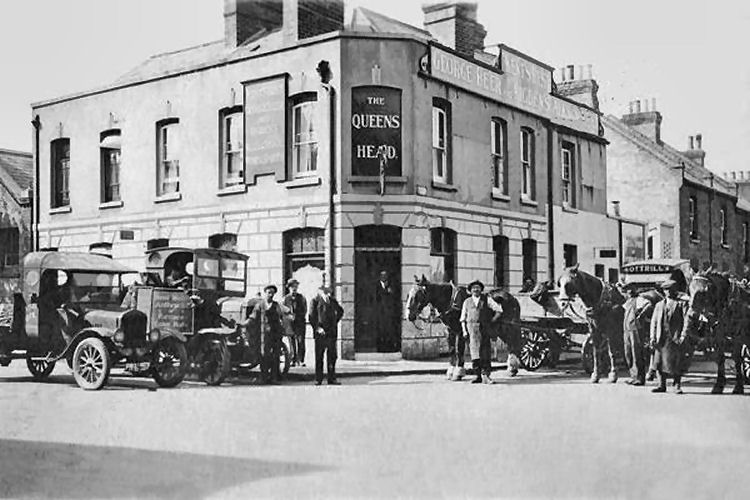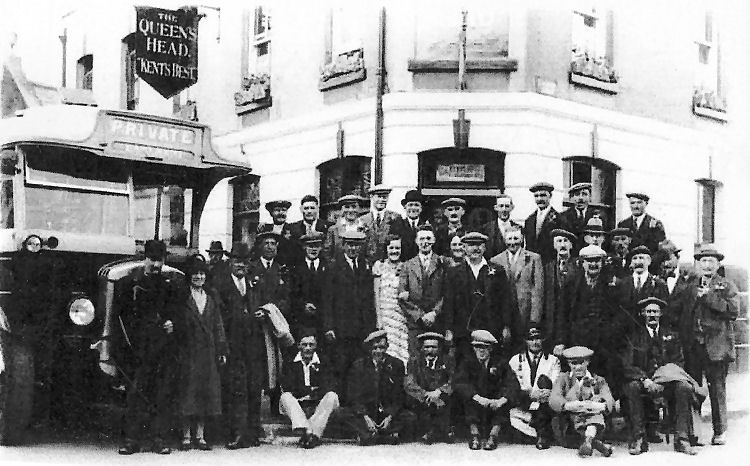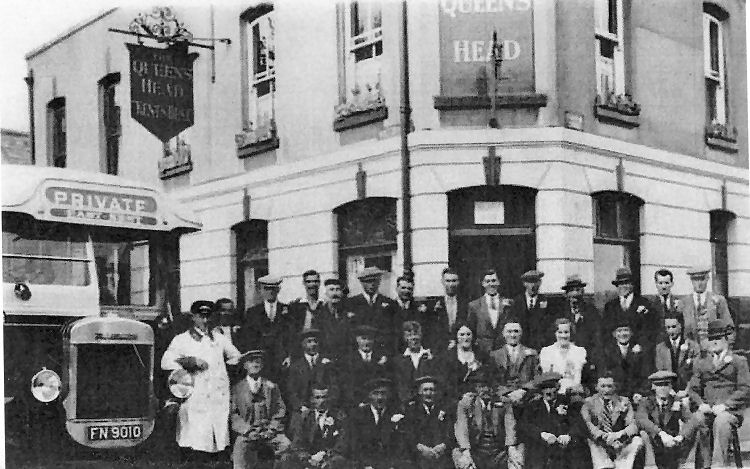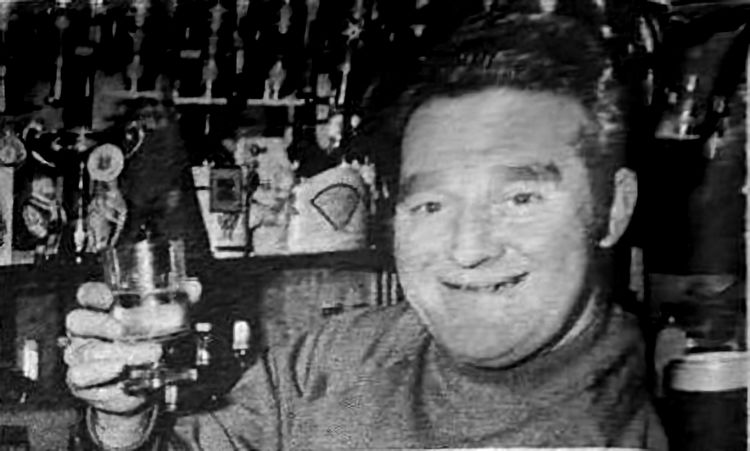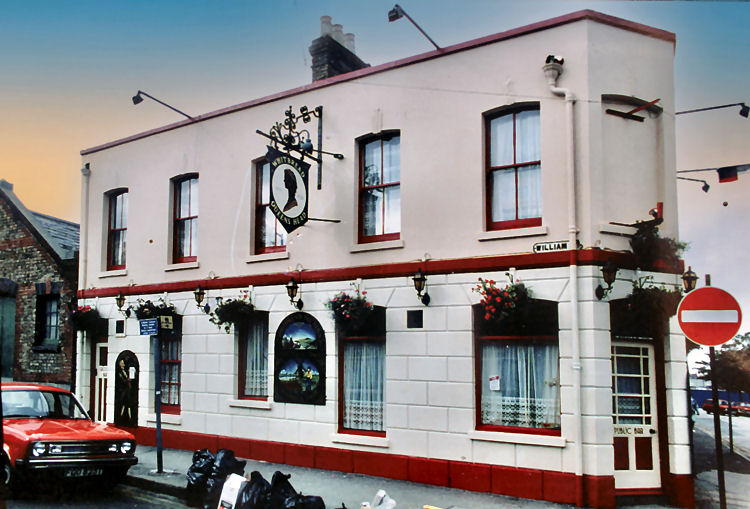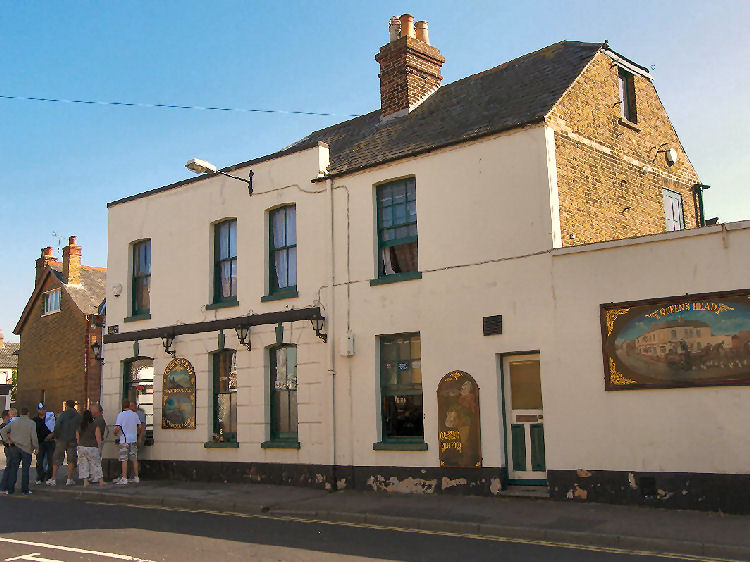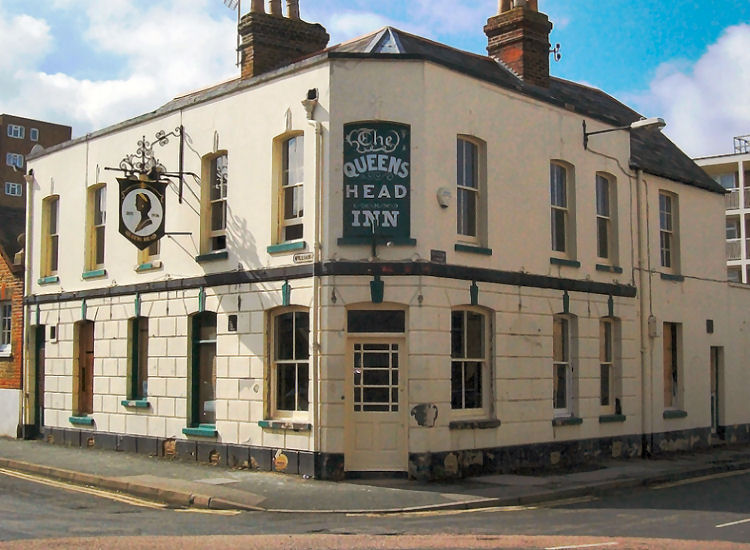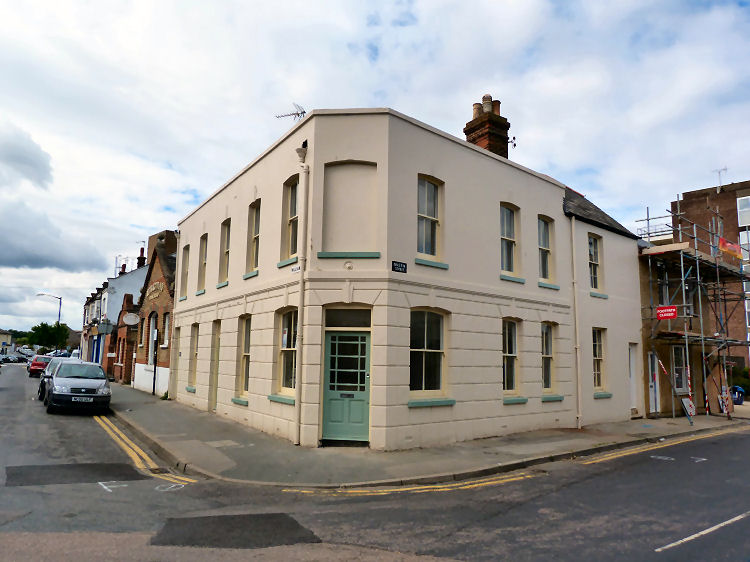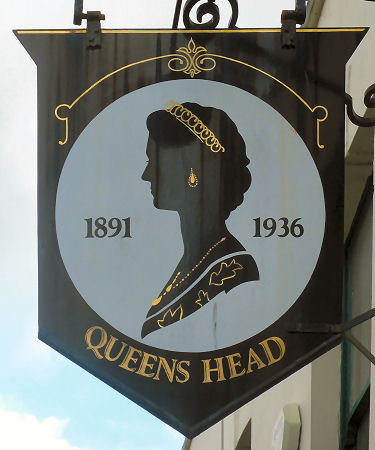|
From the Whitstable Times and Herne Bay Herald, 2 March 1907.
THE QUEEN’S HEAD, HERNE BAY.
The “Queen’s Head,” Herne Bay, which was one of the houses objected to
by the Magistrates, was then considered.
Mr. Walter Hills, of Margate, appeared on behalf of the owners, and Mr.
Rutley Mowll, of Dover, represented the licensee and the brewers,
Messrs. George Beer and Co., of Canterbury.
Superintendent Jacobs stated that the tenant of the house was Frederick
W. Honess. It was a fully licensed house, which was tied for beer and
spirits. The rent was £30 per annum. The amount of the rates was £19
13s. 9d., and the house was assessed at £60. There was a general class
of trade done, and the tenant depended on the house for his living. The
house was difficult for police supervision as at the back part of the
premises a law wall divided the licensed house from a private house
belonging to the same owners. At the bottom of the yard were wooden
steps so that children could come that way in without coming round to
the public bar.
In reply to Mr. Hills, the Superintendent said there were too many
public houses in Herne Bay, more then were required for the
accommodation of the public.
In answer to the Chairman, Superintendent Jacobs said within fifty yards
of the house there was the “Brewery Tap,” and within another twenty
yards was the “King’s Head.”
"If the “King’s Head” and “Queen's Head” are doing a good trade, it
would look as if both houses were required, would it not ?” asked Mr.
Mowll.
Superintendent Jacobs—I don't know what trade they are doing.
Mr. Mowll—But that would be the assumption?
Superintendent Jacobs—I suppose it would.
In addressing the Magistrates, Mr. Mowll said “You say there are too
many licensed houses for the requirements of the neighbourhood. That may
be so, although I don’t think the figures given by the Superintendent
are altogether satisfactory, because in a place like Herne Bay the
population varies very much in the course of the year. The population of
the town is higher in the summer months than in March, for in the summer
you have a large
number of visitors. That there are too many houses for the public
requirements may be perfectly sound; but if you have figures before you
showing that a good trade is done at a particular house you cannot say
that that particular house is not required. It really depends on the
trade of the house. If the trade is small it does look, if there are
other houses in the neighbourhood, that the house may very properly be
done away with. But where the trade is large I submit it is absolutely
necessary. Of that there can be no question, and it particularly applies
to this place.” Mr. Mowll added that the tenant paid £256 to go into the
house, which was a substantial one. He had served his Sovereign in West
Africa, and after twelve years’ service came out with the highest
character; but unfortunately without a pension, and was dependent on the
trade of the house. He conducted the house on respectable lines, and
there was nothing against it. As to the matter of the wall that could be
heightened, and the steps could be put in another place. In conclusion,
Mr. Mowll said it would be very hard to deprive Messrs. Beer and Co. of
the only house they had in the town.
Mr. Hills addressed the Bench on the hardship that would be entailed on
the owners if the licence were taken sway.
THE JUSTICES’ DECISION.
After considering the evidence in private for some time, the Chairman
announced that the decision of the Bench was that the following houses
should be reported to Quarter Sessions for the licences to be taken away
on the grounds that they were not required The “Queen’s Head,” Herne
Bay; the “Rose and Crown,” Herne Bay; the “Lower Red Lion,” Herne; and
the “Sportsman,” Sturry.
|
